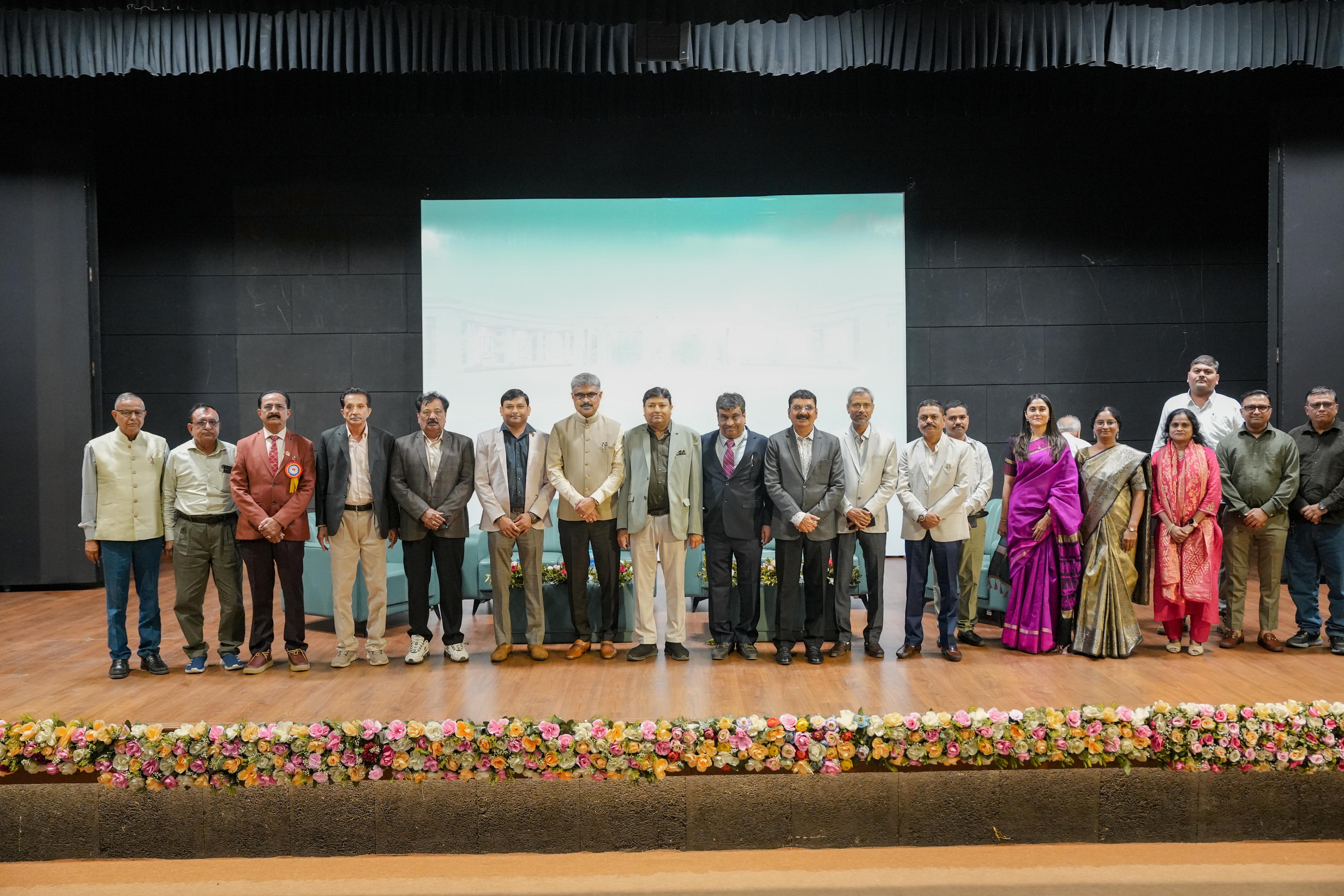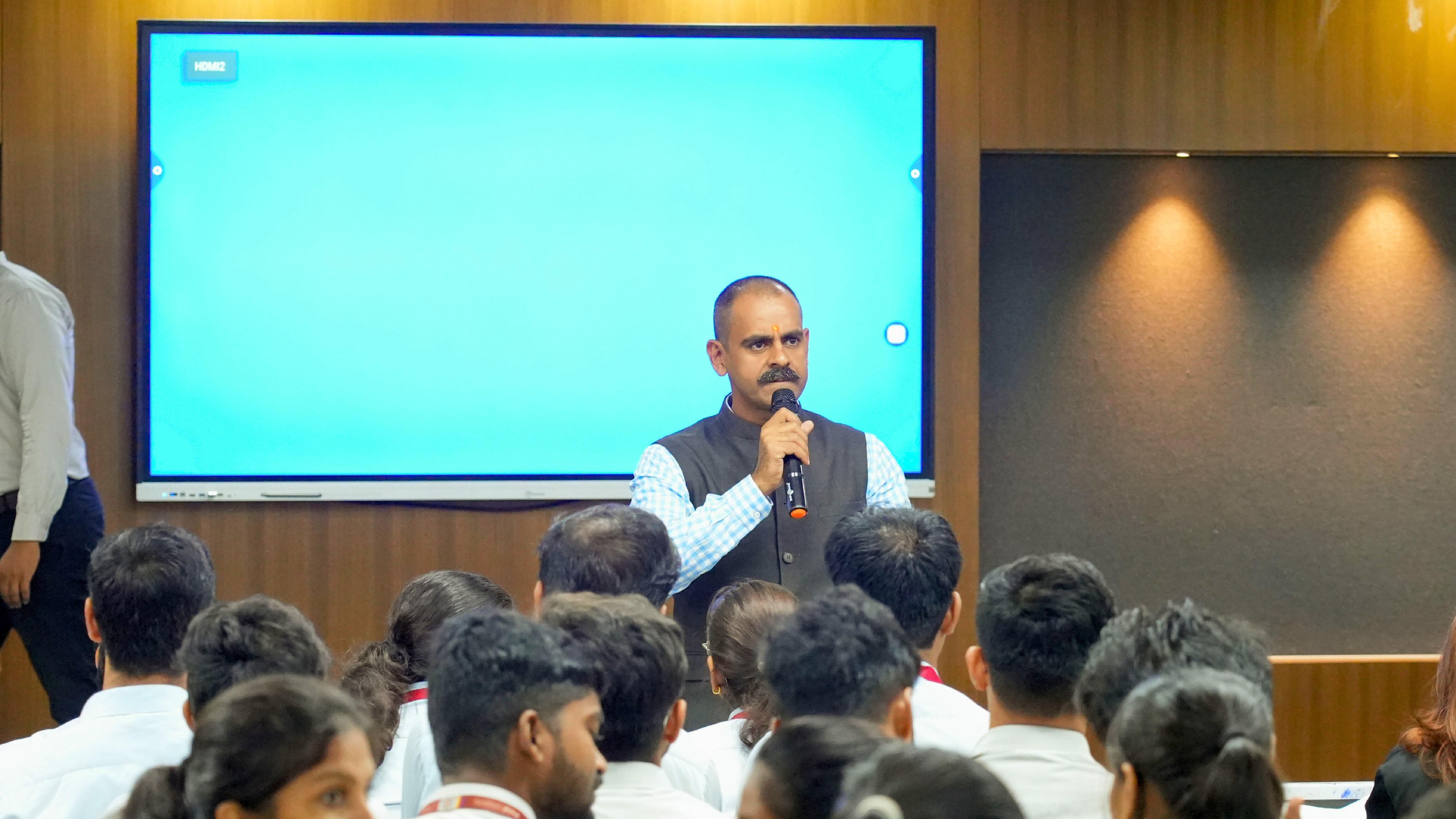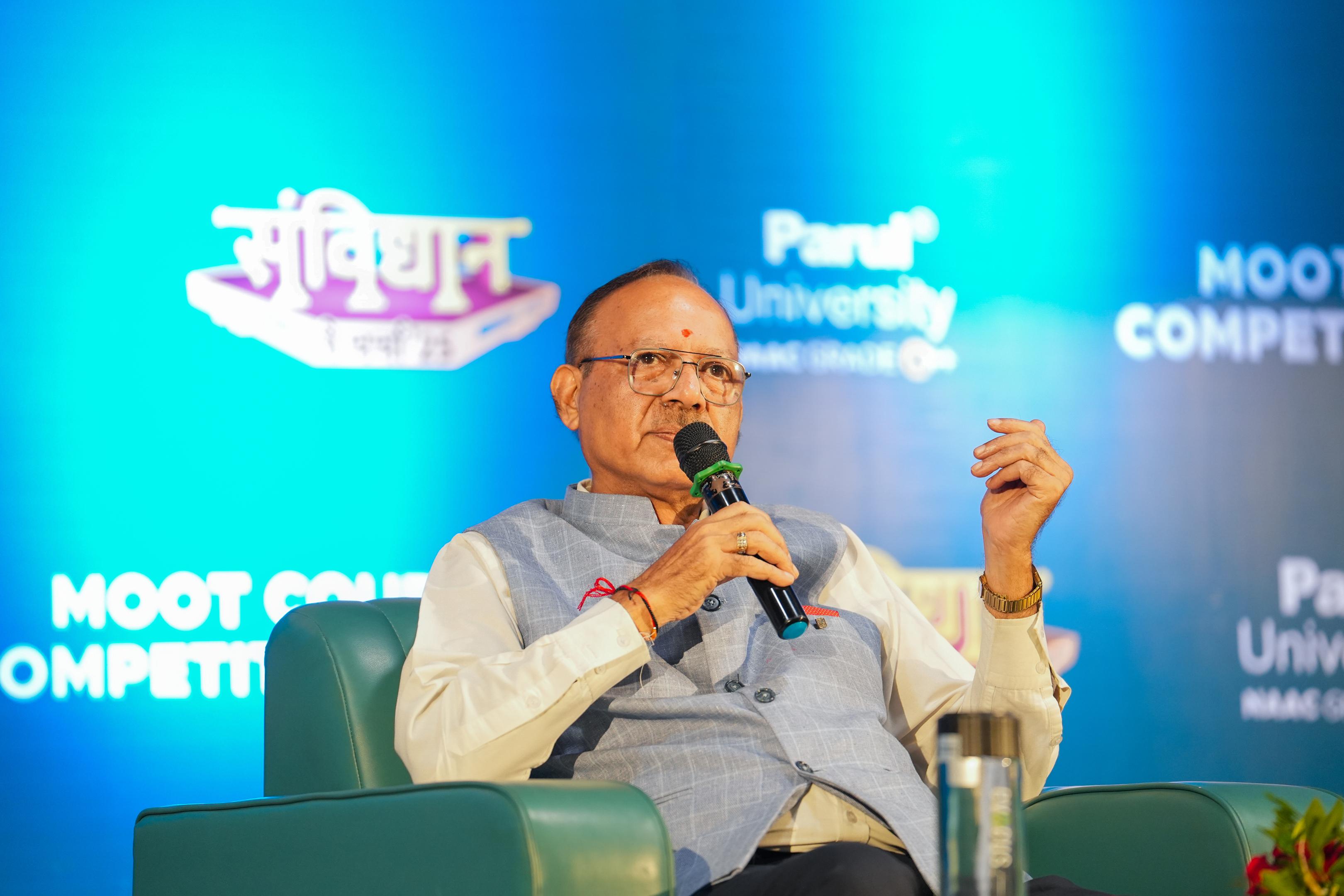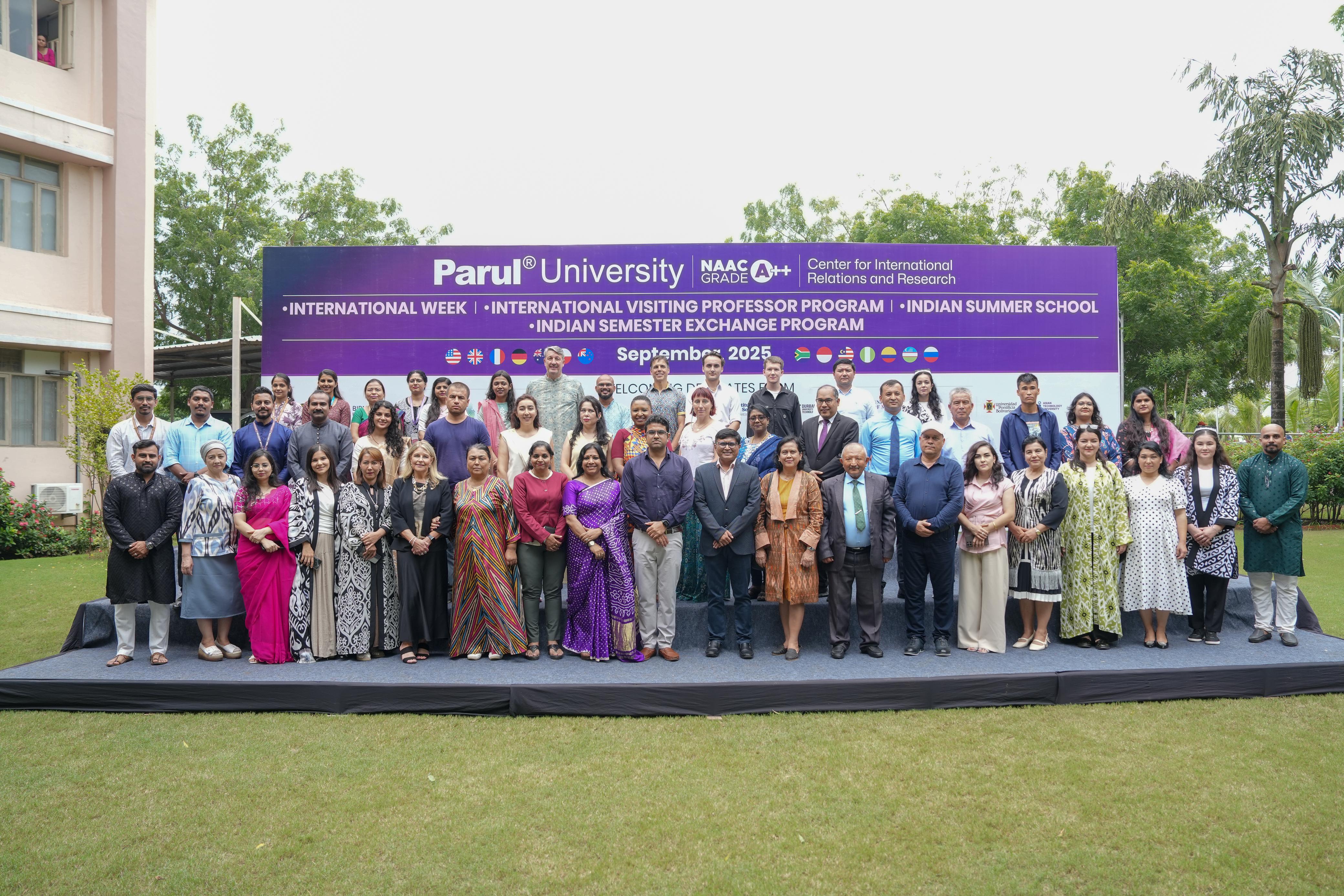This question took centre stage at PU during an Expert Talk Series that featured distinguished speakers from Gujarat's Bar Council. The occasion developed into a forum for aspiring advocates to interact directly with those influencing the ethics and legal profession both within and outside the state.
“The first duty of society is justice.” – Alexander Hamilton
Mr. J.J. Patel, Chairman of the Gujarat Bar Council, expressed this sentiment in his keynote speech, "Balancing the Scales: An Advocate's Role in Serving the Court, Protecting the Clients, and Respecting Fellow Advocates." His remarks emphasised that an advocate's responsibilities go beyond just winning cases; they also include maintaining integrity and professional dignity.
The Gujarat Bar Council's Vice Chairman, Mr Mukesh Kamdar, gave a stirring speech titled "The Role of the Judiciary: Guardian of Justice and Rights." He emphasised how the judiciary ensures that everyone has equal access to justice by acting as the protector of constitutional morality.
In order to provide students with a better understanding of the institutions that oversee legal practice in India, Mr. Nalin D. Patel, Chairman, Executive Committee, Bar Council of Gujarat, added an institutional lens and clarified the "Roles and Responsibilities of State Bar Council and Bar Council of India."
Dr. Ketan Desai, Dr. Rajesh Singh, and Mr. Shubhank Khare provided their academic guidance for the event, which was led by Dr. Devanshu Patel, President of Parul University, and Dr. Parul Patel, Vice President of Parul University. Dr. R.I. Parikh, Dean of the Parul Institute of Law. Thinking back on the project, Dr. Devanshu Patel said, "Students ought to have the chance to talk to those Bar Council leaders."
Through one-on-one interactions, they internalise moral principles, fairness, and professional accountability, lessons they will take with them into their future careers. The medium of direct interactions with senior members of the Bar Council, students were exposed to law as a living practice rather than just a textbook subject. This approach is consistent with Parul University's commitment to experiential learning, which extends legal education beyond the classroom and creates meaningful connections with the realities of justice, governance, and professional accountability.
Perhaps the legal profession can continue to protect the country's democratic fabric if tomorrow's advocates learn to value integrity over expediency. Such incidents serve as a reminder that a lawyer's true worth is determined by the strength of justice they have upheld, not by the quantity of cases they have won.
Through such initiatives, Parul Institute of Law reinforces its mission to not only equip students with strong legal knowledge but also nurture them as principled professionals who carry justice forward.
In a society where success frequently eclipses morality, the real test of advocacy is not victories but rather the integrity upheld. The question to ponder is how we can remind ourselves that maintaining justice is the real triumph.
(legal ethics in India, role of Bar Council, advocate responsibilities, law student mentorship, Gujarat legal education)



.jpg)

.jpg)


